Faith and Politics
Writing for Q Ideas, John Morehead examines the 'credibility gap' that evangelcials are facing today:
Evangelicals are having a serious credibility problem in regard to religious pluralism in the public square. This problem is amplified when it comes to Islam in a post-9/11 environment.
Stephen Prothero, in his book Religious Literacy: What Every American Needs to Know – and Doesn’t, documents that most Americans, including Christians, lack the most basic understanding of various religions. This was confirmed in the Pew Forum’s U.S. Religious Knowledge Survey in 2010 where atheists, agnostics, Jews, and Mormons, outperformed “Protestant Evangelicals, mainline Protestants and Catholics on questions about the core teachings, history and leading figures of major world religions.”
Yet this uninformed stance toward other religions has not stopped Christians from forming judgments and taking action on religious issues. After Mitt Romney announced his candidacy for president, many Christians said they would not vote for a Mormon “cult” member. When a Lutheran minister participated in an interfaith memorial service in Yankee Stadium just days after the 9/11 he received emails and letters from those in his denomination accusing him of heresy and terrorism against Christianity. As a result of his work with the Muslim community Rick Warren has been labeled a heretic and promoter of “Chrislam.” And in response to a Hindu offering the opening prayer for Congress, Christians shouted down the religious leader.
If Christians are to overcome this credibility problem, they will have to address the reality of life and faith in the midst of religious diversity. Skye Jethani, Senior Editor of Leadership Journal, has said that if the culture is religiously diverse around us, but the church is not talking about what it means to be a Christian in this environment, then the church will continue to suffer as a result.
Read more here

A few weeks ago, we asked you to sign a petition asking the Department of Justice to investigate hate crimes against the Islamic Society of Joplin’s mosque. Federal officials are offering $15,000 for information leading to the man who set the mosque on fire July 4th.
Beau Underwood wrote for Sojourners two weeks ago: “The biblical call to love our neighbors as ourselves requires Christians to speak out against these attacks. By protecting the rights of American Muslims to worship in the United States, we provide a powerful witness to those countries where Christian minorities face attack and persecution, such as Nigeria, Egypt, Somalia, and Kenya. If we expect others to take our advocacy for global religious freedom seriously, then our efforts must begin in our own backyard.”
More than 5,500 of you signed this petition, which is incredible! But we don’t have to stop there.
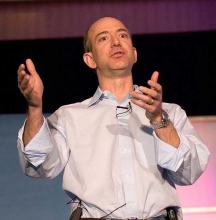
In an unconventional move, a number of high-profile business executives have come out on the issue of gay marriage.
Amazon.com founder Jeff Bezos is the latest to say "I do" to supporting same-sex unions. On July 27, Washington United for Marriage, a coalition that seeks to uphold a gay marriage law that passed in Washington, announced that Bezos and his wife MacKenzie will donate $2.5 million to its cause.
Microsoft founder Bill Gates and CEO Steve Ballmer have each donated $100,000 to the effort to keep gay marriage legal. Ken Powell, CEO of food behemoth General Mills, has publicly spoken out against Minnesota's proposed amendment that would ban gay marriage. And Paul Singer, founder of financial firm Elliott Management, recently contributed $150,000 to Freedom to Marry, which fights for gay marriage across the nation.
... Yet there are also many who support Chick-fil-A and Cathy.
For example, former presidential candidate Mike Huckabee says he's "incensed" by the negative feedback, and in turn has deemed Aug. 1 "Chick fil-A Appreciation Day," when he's asking consumers to support the chain by eating there.
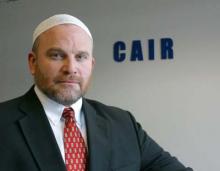
The Council on American-Islamic Relations, a national Muslim civil rights group that has frequently drawn fire from conservatives, has regained its tax-exempt status.
The Washington, D.C.-based CAIR and its related foundation were two of about 275,000 nonprofits that lost tax exempt status last year for not filing tax returns for three years in a row. Last month, the Internal Revenue Service sent a letter to the CAIR-Foundation Inc., saying the nonprofit had regained its tax-exempt status.
"We are obviously pleased that all the paperwork issues have been resolved and our tax-exempt status has been restored," said Ibrahim Hooper, communications director for CAIR. Hooper did not know the details of what paperwork, including tax returns, had been filed.
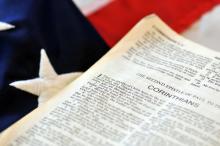
Right now, it’s difficult to voice a call for civility surrounding religious debates without backlash that you’re stomping on rights or stifling someone’s voice. But here’s hoping.
Religious freedom. What does it mean, and what were we promised? In Sunday’s New York Times, Ross Douthat — columnist and author of Bad Religion: How We Became a Nation of Heretics — points out that we have a guaranteed right not only to religious belief, but to religious exercise. That right to religious exercise, he argues, is violated in cases like the HHS mandate and the Chick-fil-A debacle.
From Douthat’s piece:
“If you want to fine Catholic hospitals for following Catholic teaching, or prevent Jewish parents from circumcising their sons, or ban Chick-fil-A in Boston, then don’t tell religious people that you respect our freedoms. Say what you really think: that the exercise of our religion threatens all that’s good and decent, and that you’re going to use the levers of power to bend us to your will.”
From here, people tend to go to extremes. On one side: boycott everything whose owner you have a philosophical or religious disagreement with on a personal level. But really do it. Sure it’s easy enough to shun fast food, but enough research will likely prove that our American dream to be comfortable far outweighs our attention span. (Please excuse my cynicism, and please let me know if any of you are successful in this endeavor. I’ll tip my hat to you.)
Of course, it cuts both ways. Extremism comes in a variety of political preferences, so I’ll throw this out there as well: No, there is not a “war on religion” in the United States.
Writing for The Huffington Post, Eric Sapp takes a closer look at a recent Pew Forum poll:
Here's a key point in the poll that didn't get much attention: 82 percent of those who know Obama is Christian say they are comfortable with his religion. So voters are basically twice as comfortable with Obama's faith when they know what it is. This is why faith outreach is so important (but more on that later).
Why does the fact that most voters are not comfortable with Obama's religion matter? More than two-thirds of voters (and seven-in-10 women voters) say they want a president with strong religious beliefs. As one might imagine, these numbers are even higher with religious populations. Eight-in-10 Protestants and three-in-four Catholic voters want a president with strong religious beliefs. And let's be honest, they aren't talking about wanting Obama to have strong Muslim beliefs (so the fact that 17 percent of voters think he's Muslim doesn't add to the plus column)!
Read more of Eric's analysis here

One of the common ditches that political candidates fall into is the temptation of a “concrete” character.
Among other things, one who is concrete holds to views that are supposedly unchanging and non-negotiable, and thus they possess an inability to compromise with those who may have diverse perspectives. A concrete character is often grounded in the belief that she/he “knows” who she/he is, and because of these unbreakable principles will not waver in her/his understanding regardless of the setting and potential consequences.
In other words, a person with a concrete character is immovable, solid, and resolute, and as a result, nearly impossible to bend or twist. While there is much to be admired in those who display the concrete character, there is also much to be criticized.
For example, while concrete may be strong and resolute, it is also fixed in time, stiff, and inflexible, and is thus unable to change regardless of conditions, societal advances, and circumstances. Thus, concrete — sooner or later — will crack.
As the current generation experiences cultural and technological change at a rate far greater than any era before it, those who refuse to be changed by unfolding knowledge and wisdom allow life to pass by while remaining trapped in one place. Therefore, while the concrete character may appear to be one of strength, it is ultimately weak, vulnerable, and unsustainable.

For the second time in less than a year, the Gallup poll reports that a majority of Americans would vote for an atheist for president.
The latest survey, from June, found that 54 percent of those asked said they would vote a “well- qualified” atheist into the Oval Office — the highest percentage since Gallup began asking the question in 1958, when only 18 percent said they would back a nonbeliever.
On the other hand, the survey showed that those who do not believe in God still come in behind every other group polled for, including gays and lesbians (68 percent) and Muslims (58 percent).
Still, an imaginary atheist candidate passed the 50 percent threshold for the first time when Gallup asked the question in August 2011, so the trend is upward.
“We have seen an enormous change over time in the willingness to vote for an atheist,” said Karlyn Bowman, a senior fellow at the American Enterprise Institute for Public Policy Research, which reports the numbers in its current newsletter.
“But I think the numbers also remind us that this is a deeply religious country. That doesn’t mean we are all going to church on Sunday, but that having religion in your life is valuable to most Americans and I think that explains the resistance.”
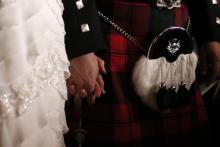
Scotland has announced it will allow same-sex weddings as early as 2015, becoming the first country in the United Kingdom to do so.
"We are committed to a Scotland that is fair and equal, and that is why we intend to proceed with plans to allow same sex marriage and religious ceremonies for civil partnerships," said Deputy First Minister Nicola Sturgeon, who made the announcement on July 25.
The Church of Scotland and the Roman Catholic Church were against the move, but gay-friendly Christian groups said they were "relieved" by the announcement.
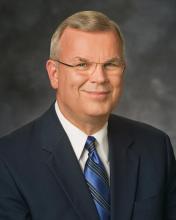
WASHINGTON — As he competes against a Mormon in the presidential election, President Obama has appointed the first Mormon member of his White House faith-based council.
Elder Steven Snow now serves as the The Church of Jesus Christ of Latter-day Saints official historian.
He is also a member of the First Quorum of the Seventy, a priesthood order of teachers and administrators.
“The faith-based office is made up of leaders of religions from across our great country, and Elder Snow’s appointment ensures that the LDS faith will have a seat at the table,” said Sen. Orrin Hatch, R-Utah. Like Snow, Hatch is Mormon.
Mitt Romney, the presumptive GOP nominee, is also a member of the LDS church.
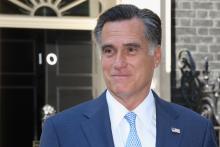
Though Mitt Romney talks little about his faith on the campaign trail, he grew up in the Mormon Church and spent years as a top church leader in Massachusetts. From 1986 to 1994, he was president of the Boston stake, an entity similar to a Catholic diocese. Before that, Romney was bishop, similar to a lay pastor, of congregations in Belmont and Cambridge. Each job included both organizational work and counseling.
After leaving the stake president position, Romney taught Sunday school for a year, then oversaw the church’s programs for teenagers for around two years. Romney continues to tithe — giving 10 percent of his income to his church. In accordance with Mormon teachings, he does not drink alcohol, tea or coffee. He attends church services when he can. Romney's campaign did not respond to requests for comment on this story.
As a church leader, Romney ran the church with businesslike efficiency.
“He was very serious about doing an excellent job about things and he didn’t suffer fools,” said Helen Claire Sievers, executive director for the Harvard-affiliated WorldTeach, who was active in the church when Romney was stake president.
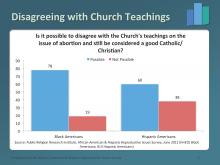
The influence of clergy in swaying their congregants' attitudes about moral issues like abortion and contraception access is dwindling, according to a new study.
The Religion, Values, and Experiences: Black and Hispanic American Attitudes on Abortion and Reproductive Issues survey, conducted by the Public Religion Research Institute, shows that there continues to be a disconnect in personal, moral belief and feelings about public policy.
"What they're hearing at church is not the big mover on attitudes of legality of abortion," Robert Jones, PRRI CEO, said.
While 51 percent of black Americans believe abortion is morally wrong, 67 percent say it should be legal in all or most cases.
"I really think that freedom of choice is probably one of the most precious components of what it means to be a Christian. Blacks have been quite possessive and reflective of this fact," said Dr. Stacy Floyd-Thomas, associate professor of Ethics and Society at Vanderbilt University's Divinity School. "… You do have the majority saying that they might see it as a sin or they are against it, but you still have the right."
Both groups believe it is possible to disagree with church teaching and be a good Catholic or good Christian. Jones pointed to the growing trend of personal versus external focus. Previous surveys have shown that attitudes about religion are mostly influenced by people's own beliefs and behaviors rather than institutional doctrine.

A palpable feeling of hope and urgency hung heavy in the air of Washington, D.C., this week as thousands of activists descended on the nation’s capital to encourage and inspire colleagues and decision-makers to “turn the tide on AIDS.”
The International AIDS Conference 2012 has returned to the United States, thanks in part to the lifting of the HIV/AIDS travel ban by the Obama Administration in 2010, which followed work from President George W. Bush also to lift the ban.
As part of the Conference, faith leaders from across the world were invited Tuesday morning to a forum hosted by the White House. It was an opportunity to hear from U.S. and international experts and officials, as well as come together as a community of faith, standing up against the stigma and isolation which have been two of the biggest roadblocks to achieving the goal of an AIDS-free generation.
Tuesday’s event centered around two panel discussions — one examining what the faith community uniquely brings to the table in tackling the HIV/AIDS epidemic, and the other focusing on the relationship between governments and people of faith in building the effective partnerships needed to tackle it.
The tone of the discussions was, in many ways, extremely positive. We heard about vast improvements in treatments and holistic care, services often administered by faith-based organizations around the world.
“Hope,” as White House Office of Faith-based and Neighborhood Partnerships Executive Director, Joshua DuBois, noted, is overcoming “fear.”
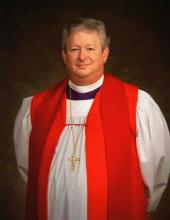
BIRMINGHAM, Ala. — Episcopal Bishop Kee Sloan of Alabama voted in favor of his church's new ritual for blessing same-sex unions — but he won't allow priests in his diocese to perform it.
“For the time being, I will not give permission,” Sloan said.
The blessing of same-gender unions is still too divisive an issue for Alabama, he said.
“It’s not good at this time in this place,” Sloan said. “I’m trying to avoid any further division.”
Episcopalians overwhelmingly approved the new rite for same-sex couples July 10 at the denomination's General Convention. Bishops do not have to allow them, however, and about 10 active bishops have said they will not. The denomination has 110 dioceses in all.
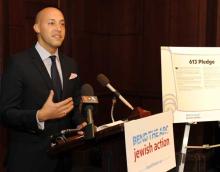
WASHINGTON — Bend the Arc, a liberal Jewish group that has advocated for social justice causes for more than 30 years, last week launched a lobbying arm and political action committee to give it more weight on Capitol Hill and across the nation.
The move is unusual, if not unique. There seem to be no other Jewish groups with a broad agenda that have such lobbying tools at their disposal, said Rabbi David Saperstein, who heads the Religious Action Center of Reform Judaism.

MARINE, Ill. — Joseph Haegele remembers going to the church across the road from his grandparents' house on Windmill Street in this farm town in 1956, when he was 5 years old.
Haegele has attended other Catholic churches in the area. But St. Elizabeth's remains special to the former General Chemical employee and his wife, Lynn. The annual church picnic has been part of family tradition for decades. And after their 25-year-old son died of a brain tumor 15 years ago, Haegele said, the couple adopted a priest's flower garden behind St. Elizabeth's rectory as a memorial.
But a Madison County Circuit Judge Duane Bailey has ruled that Haegele can worship at St. Elizabeth's only on the last weekend of each month.
Legal experts say the judge's order illustrates the conflict between orders of protection and religious liberty. And prior cases have affirmed the rights of courts to issue restraining orders on individuals even if it affects their ability to attend a house of worship.
Bailey's order is extraordinary in that it imposes not only distances of separation, but specifically bars access to a church on particular days.
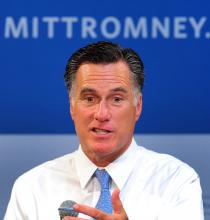
WASHINGTON — Neither Mitt Romney’s trip to Israel Saturday nor President Obama’s Middle East policies will have much effect on Jewish voters this fall, according to a new report that says Jewish voting patterns are predictable and unchanging.
The report, “Making Sense of the Jewish Vote,” predicts Jewish Americans will follow historical precedent and largely vote Democrat this fall. Moreover, Jewish voters will have a negligible effect on the presidential election’s outcome, even in swing states, said Jim Gerstein, a pollster with polling firm GBA Strategies who compiled the report.
Still, the Republican Jewish Coalition recently announced a multimillion-dollar advertising campaign targeting Jewish voters in swing states Pennsylvania, Florida and Ohio. “My Buyer’s Remorse” features testimonials decrying Obama’s posture toward Israel and economic policies.

A new poll released today shows an overwhelming percentage of black and Hispanic voters favor Barack Obama over Mitt Romney in the upcoming presidential election — 87 percent and 58 percent, respectively. Both groups say the economy is a critical issue in the election.
The Religion, Values, and Experiences: Black and Hispanic American Attitudes on Abortion and Reproductive Issues survey, conducted by the Public Religion Research Institute, also showed that two-thirds of black Americans believe abortion should be legal in all or most cases, while only 46 percent of Hispanic Americans agreed.
Both black and Hispanic Americans (81 and 79 percent, respectively), say contraception is morally acceptable and support expanding access to it. Further 61 percent of black Americans and 64 percent of Hispanic Americans say religiously affiliated institutions should provide contraception at no cost to their employees.
For more on the survey, stay tuned to the God's Politics blog for continued coverage.

A federal appeals court has upheld Georgia’s ban on bringing guns into places of worship.
The Rev. Jonathan Wilkins, a Baptist pastor, and a gun-rights group had argued that church members should have the right to carry guns into worship services to protect the congregation.
But the 11th U.S. Circuit Court of Appeals ruled on July 20 that a Georgia law adopted in 2010 does not violate the Thomaston congregation’s First and Second Amendment rights.
Gun-rights advocates might want a weapon for self-defense, but that is a “personal preference, motivated by a secular purpose,” the court ruled.
Jerry Henry, executive director of GeorgiaCarry.org, said the minister and his organization are mulling an appeal to the U.S. Supreme Court.
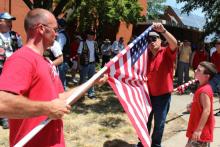
Thousands of people wearing red shirts gathered in downtown Columbia, Mo., July 21 to honor an Army solider killed recently in Afghanistan—and to fend off Westboro Baptist Church.
The controversial church, based in Topeka, Kan., had posted fliers around Columbia in advance of the funeral of Army Spc. Sterling Wyatt, who was killed July 11 by an improvised explosive device.
“These soldiers are dying for the homosexual and other sins of America. God is now America’s enemy, and God Himself is fighting against America," the posters read. "THANK GOD FOR IEDs.”